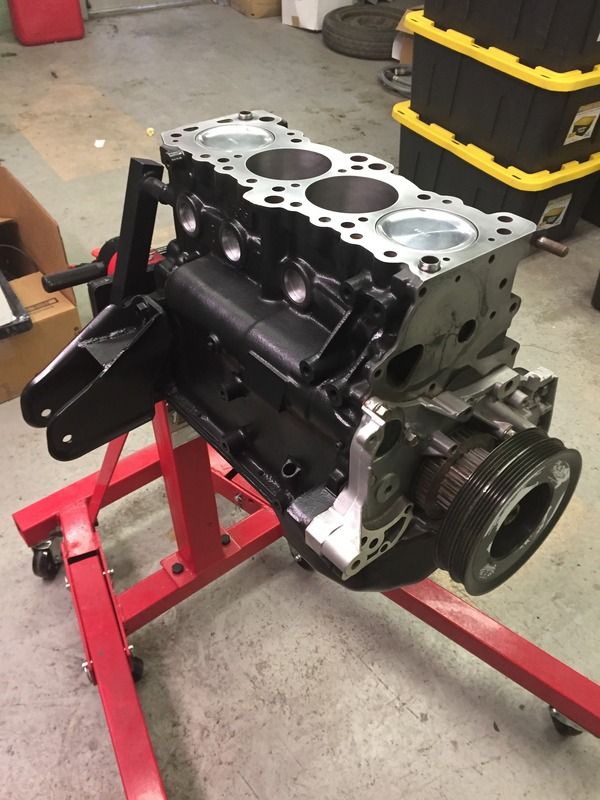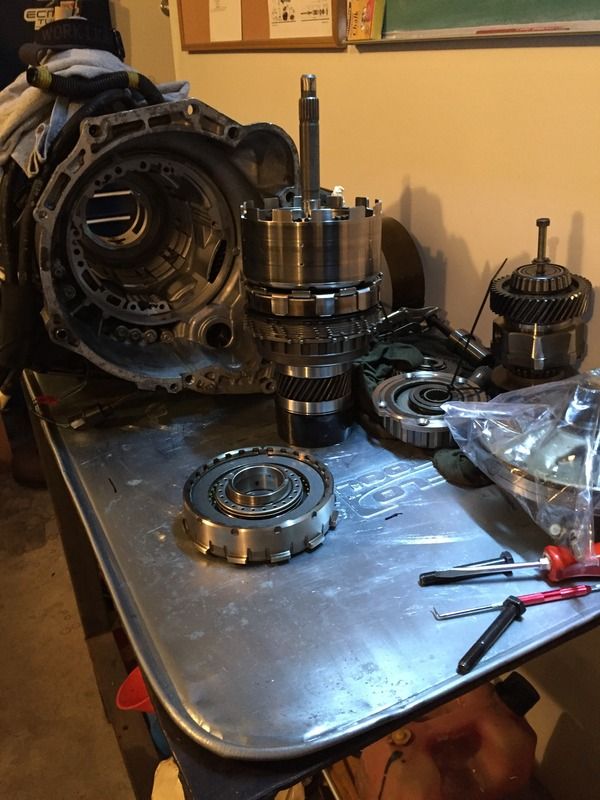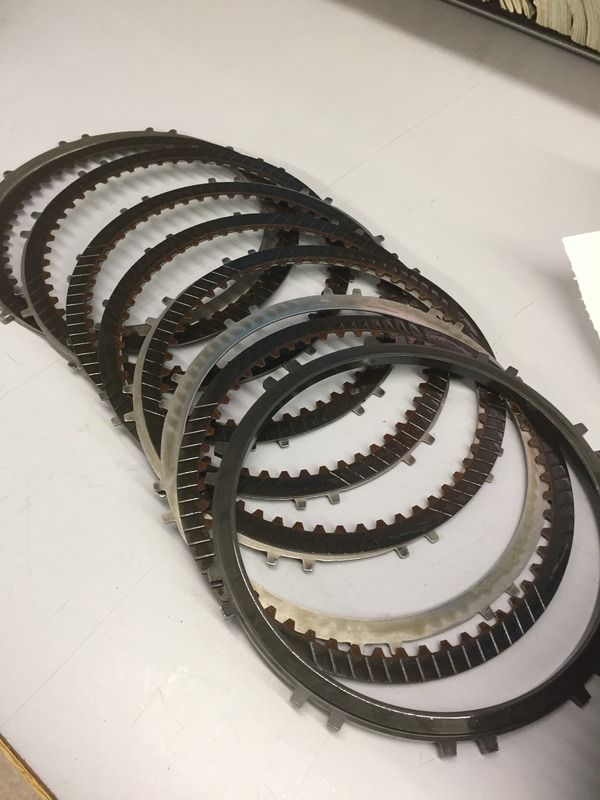 05-28-2016, 05:13 AM
05-28-2016, 05:13 AM
|
#411 (permalink)
|
|
Defeating the EPA's trap!
Join Date: Dec 2015
Location: canada
Posts: 8
Thanks: 16
Thanked 13 Times in 7 Posts
|
It says I need one more post before I can post links and pictures, so this is that one more post.
|
|
|

|
 Today Today
|
|
|
|
 Other popular topics in this forum...
Other popular topics in this forum...
|
|
|
|
 05-28-2016, 05:13 AM
05-28-2016, 05:13 AM
|
#412 (permalink)
|
|
Defeating the EPA's trap!
Join Date: Dec 2015
Location: canada
Posts: 8
Thanks: 16
Thanked 13 Times in 7 Posts
|
Now there are a few different styles of ignition.
One style has dc right from the battery dumping into the coil and it is stepped up buy the coil. This is your normal car ignition.
One style has a cap that was charged buy the battery, than that cap dumps into the coil, and coil steps up the voltage. This is cdi ignition.
Than to improve on this, you can use one of 2 methods,
One is to run a cap between the ground and positive of the sparkplug. With this method im not entirely sure what is going on but somehow the spark duration is shortened and energy is increased. This results in a slightly delayed and shorter duration but bigger and more powerful spark. Nology hotwires uses this method.
Here is a video about this method
The second method might only work with a cdi box?? It is to use a diode's delayed switching action to switch the paths of current to loop through the coil twice and have the voltage stepped up twice rather than once. result is the same a delayed but more powerful shorter duration spark.
Here is a video showing this style. |
|
|

|
|
The Following 2 Users Say Thank You to LeanMeanDSM For This Useful Post:
|
|
 05-28-2016, 03:13 PM
05-28-2016, 03:13 PM
|
#413 (permalink)
|
|
Master EcoModder
Join Date: Jul 2012
Location: camden, MI
Posts: 324
MC SBX - '95 Chevrolet Monte Carlo LS Last 3: 29.75 mpg (US)
Thanks: 7
Thanked 56 Times in 46 Posts
|
putting a capacitor across a spark gap will cause the secondary side of the coil to spend more time generating a higher voltage before the air(or air/fuel mix, in the case of an engine) breaks down and conducts the spark... with some very low ESR, very high voltage capacitors, I can see how that would cause a shorter duration, higher intensity spark: capacitors charge until the arc occurs(which lengthens secondary voltage rise time), then they dump their charge through the arc.... but that's exactly what CDI ignitions and low resistance plugs/wires do already. for a given amount of energy fed into the coil, they trade off spark duration for spark intensity. this isn't always a desirable compromise depending on the situation, especially when you look at plug/wire/coil life during this kind of operation(not to mention the havoc you can wreak on any circuits that are sensitive to induced current via EMI). it does seem like a way of getting CDI characteristics out of an inductive ignition setup though.
I'm not entirely certain what is going on with the second video, not enough time to analyze it at the moment.
__________________

|
|
|

|
|
The Following 3 Users Say Thank You to RobertISaar For This Useful Post:
|
|
 06-04-2016, 11:24 PM
06-04-2016, 11:24 PM
|
#414 (permalink)
|
|
Defeating the EPA's trap!
Join Date: Dec 2015
Location: canada
Posts: 8
Thanks: 16
Thanked 13 Times in 7 Posts
|
|
|
|

|
|
The Following 2 Users Say Thank You to LeanMeanDSM For This Useful Post:
|
|
 06-05-2016, 12:15 PM
06-05-2016, 12:15 PM
|
#415 (permalink)
|
|
In Lean Burn Mode
Join Date: Apr 2009
Location: Pacific NW
Posts: 1,573
Thanks: 1,350
Thanked 628 Times in 408 Posts
|
Here is a article about the Mahle system that F1 teams are now using to improve efficiency and performance.
Turbulent Jet ignition pushes engine combustion efficiency - F1technical.net
The jet ignition system is a new combustion technology, patented as US20120103302 on 1 Nov 2011 that replaces the standard spark plug in SI engines with a jet ignition chamber assembly. It facilitates the implementation of ultra lean-burn operation in gasoline engines, improving their efficiency and reducing the formation of pollutants such as nitrogen oxide and particulates.
One of the main benefits of the system is that, depending on the specific design of the cylinder heads, the jet igniter can be a drop in replacement for the traditional spark plug.
The jet igniter itself includes a small ignition chamber with a direct injector (DI) that provides a small amount of auxiliary fuel (<5% of the total system fuel) and a spark plug to ignite that charge. The ignition chamber is connected to the main chamber by a number of orifices which allow jets of partially combusted products to ignite the main charge. The smaller orifice size causes turbulence in the hot gas jets which then penetrate deeper into the main combustion chamber and cause an evenly distributed ignition effect. The main chamber is fuelled through a conventional port or direct-injection injector.
With 4-8 ignition jets, depending on the application, the main charge is extensively ignited and a faster burn-through and pressure build-up is generated. Furthermore, this process allows increased compression ratios (a 4 point increase in some applications) combined with lower combustion temperatures and reduced throttling / pumping losses to achieve peak indicated thermal efficiencies up to 45% - not to be confused with the reported > 48% thermal efficiency that Mercedes is achieving for its entire F1 power unit.
The details of how Mahle has adapted the TJI system for Ferrari or obviously still held anxiously secret, but results from the various testing beds have shown promising measurements. Mahle have for instance tested various prototypes with on a visual test bed, as well as a single-cylinder engine, and found fuel efficiency gains of more than 17% over spark ignition. Apart from this increased efficiency, the potentially reduced cooling needs will be equally interesting for F1 designers, as that could allow tigher cooling packages and improved aerodynamics.
Mahle says the new design results in much quicker ignition that with standard spark ignition, "enabling the engine to operate at optimum spark timing as the knock limit is extended significantly. In car engines, high fuel savings are achieved by the higher, almost diesel-like efficiency. Engine tests show specific consumption below 200g / kWh and significant related reductions in CO2 emissions".
__________________
Pressure Gradient Force
The Positive Side of the Number Line

|
|
|

|
|
The Following 5 Users Say Thank You to pgfpro For This Useful Post:
|
|
 06-05-2016, 08:40 PM
06-05-2016, 08:40 PM
|
#416 (permalink)
|
|
Not Doug
Join Date: Jun 2012
Location: Show Low, AZ
Posts: 12,313
Thanks: 7,313
Thanked 2,246 Times in 1,733 Posts
|
Awesome! This will be available for passenger cars in five or ten years?  |
|
|

|
|
The Following User Says Thank You to Xist For This Useful Post:
|
|
 06-06-2016, 09:50 PM
06-06-2016, 09:50 PM
|
#417 (permalink)
|
|
In Lean Burn Mode
Join Date: Apr 2009
Location: Pacific NW
Posts: 1,573
Thanks: 1,350
Thanked 628 Times in 408 Posts
|
Quote:
Originally Posted by Xist

Awesome! This will be available for passenger cars in five or ten years?  |
It looks like the major car manufacturers are employing this technology into their new engine format. This will be great news for the CAFE rule and the consumer.
__________________
Pressure Gradient Force
The Positive Side of the Number Line

|
|
|

|
|
The Following 2 Users Say Thank You to pgfpro For This Useful Post:
|
|
 06-08-2016, 03:12 PM
06-08-2016, 03:12 PM
|
#418 (permalink)
|
|
Master EcoModder
Join Date: Nov 2012
Location: San Diego, California
Posts: 982
Thanks: 271
Thanked 386 Times in 259 Posts
|
The Mahle technology is not as new as the article implies. There are numerous accounts and patents of similar applications. To be exact, we were using an old 70s era Mercedes 240 D engine as our Xprize power source. The engine was modified to use less compression but retained the pre-chamber injector with the glow plug reamed out to accept a Ford long reach spark plug fired by some no name capacitive discharge ignition system. The engine could run on all the allowed fuels for the AutoXprize - diesel, gasoline, E85 or CNG , with some tuning changes. The pre-chamber fueling only represented a small fraction of the fuel flow as most of the fuel was introduced in the intake tract.
This Mahle application is very similar and I wonder how they obtained a patent for such a mechanism. Specifics of application could grant you a patent, but I really don't see this as being all that new.
|
|
|

|
|
The Following 4 Users Say Thank You to RustyLugNut For This Useful Post:
|
|
 07-31-2016, 11:41 AM
07-31-2016, 11:41 AM
|
#419 (permalink)
|
|
In Lean Burn Mode
Join Date: Apr 2009
Location: Pacific NW
Posts: 1,573
Thanks: 1,350
Thanked 628 Times in 408 Posts
|
Well the nitrous testing is done.
Did ABA testing and with nitrous activated seen around a 8% increase in fuel mileage. This was with a decrease in ignition timing of 4* and a decrease of injector flow of 4% and a decrease in BSFC of 5%.
All in all it did what I thought it would do and I didn't see anything new. I will be testing N2O WOT next with some changes from the ordinary. My plans are to run a much leaner A/F ratio then normal. It will be a two stage system with a 75 shot from 3000 rpm to 8500rpm and then bring in the second kit a
150 shot from 6000rpm to 8500rpm.
Did some test hits today with the slicks back on.

__________________
Pressure Gradient Force
The Positive Side of the Number Line

Last edited by pgfpro; 07-31-2016 at 07:21 PM..
|
|
|

|
 01-15-2017, 12:52 PM
01-15-2017, 12:52 PM
|
#420 (permalink)
|
|
In Lean Burn Mode
Join Date: Apr 2009
Location: Pacific NW
Posts: 1,573
Thanks: 1,350
Thanked 628 Times in 408 Posts
|
Update:
Been building my spare engine that I will use later on this year. This is built to handle over 800 HP. This pic is before I pulled the rods and pistons back out to alter the pistons domes for my lean burn pre-chamber.

I was going to gut the car and get the weight down from 3180 with me in it to 2600lbs with me in it, but I have change my mind and will keep it the same weight and more of a all season street car that will run a low 9 second 1/4 mile.
I also have been building and modifying my back up transmission. It will be able to handle the extra power with the usual shift kit valve body mods plus a Kiggly 5 disk front clutch etc.

For fuel economy and performance I will be removing some disks on the Low/Reverse Clutch.

I'm still running waste solvent in her for my daily driving. My fuel economy suffers when using the waste solvent averaging around 40mpg due to the low stoichiometry of the solvent make up, but it only cost me .03 cents per mile on the average.
__________________
Pressure Gradient Force
The Positive Side of the Number Line

|
|
|

|
|
The Following 3 Users Say Thank You to pgfpro For This Useful Post:
|
|
|